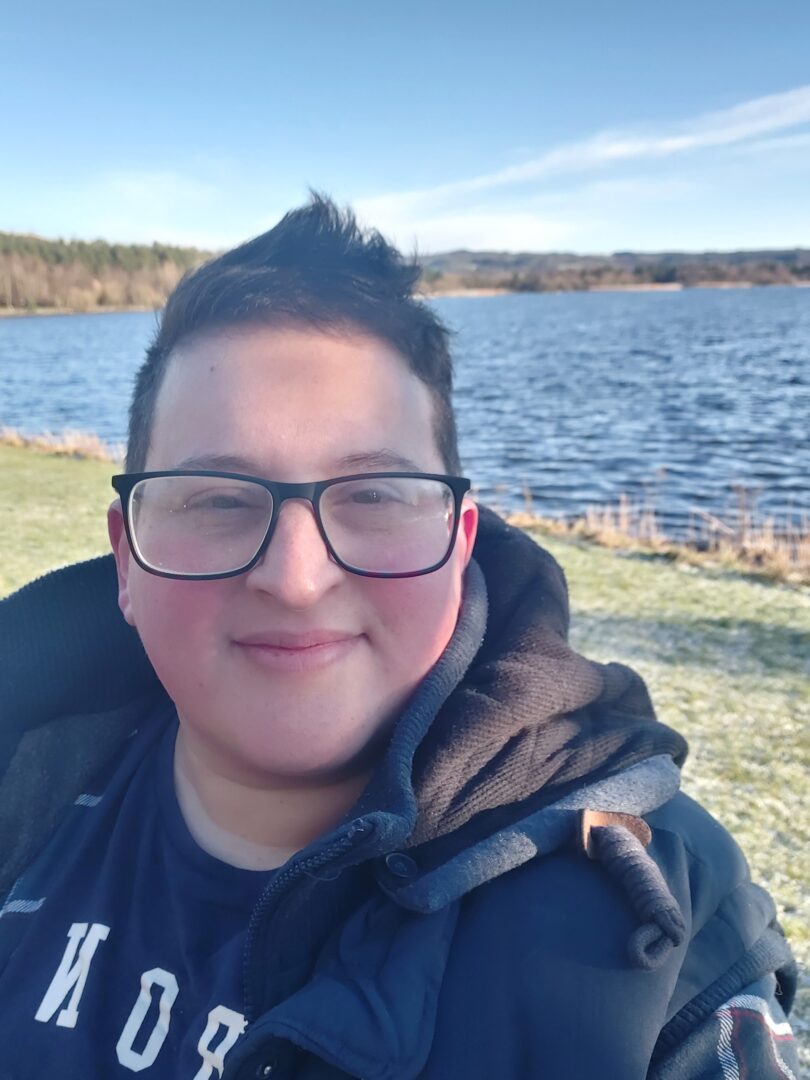

Event Overview
Most of us recognise the negative beliefs, judgements, and attitudes that people with larger bodies face within society. What we often fail to appreciate is how these impact healthcare, both mental and physical. Weight based discrimination leads to poorer treatment, poorer health outcomes, and poorer quality of life as a result. During this course, clinicians will learn all about the impact of weight stigma in healthcare and how this directly impacts your clients, both in their day-to-day lives and particularly when engaging in kink play and lifestyle.
Recordings of the webinar will be made available to individuals who have purchased tickets to the live event. Recordings are typically made available to attendees within 2 weeks of the end of the training. The recordings will be released with a content evaluation that ticket-holders may use to earn CEs asynchronously. Once they are released, asynchronous recordings will be available for one month. Attendees will receive access to the asynchronous materials within two weeks from the end of the webinar.
Intended Audience: Beginner/Intermediate. The intended audience for this workshop includes mental health providers and medical providers who have some basic knowledge of kink/BDSM behaviors. As such, this is intended as an intermediate level training. Community members are welcome and may be part of the audience.

Learning Objectives
-
- Identify at least 2 harmful misrepresentations or stigmas within health care related to people with larger bodies.
-
2. Understand the additional lengths to which clients with larger bodies have to go in order to advocate for their health within clinical spaces.
-
3. Outline at least 2 considerations and/or practices for people with larger bodies participating in kink play.
-
4. Engage in critical discussions about some of the biases and stigma experienced by people with larger bodies at play parties or in kinky spaces.

Continuing Education Information
The complete event of four hours is eligible for 4 CE units. CE credit is APA and/or AASECT credit. CARAS is the organization that will sponsor the CE credit. CARAS is approved by the American Psychological Association to sponsor continuing education for psychologists. CARAS maintains responsibility for this program and its content. www.carasresearch.org Many states honor APA CE credits for other licensed health professionals, please check with your own state licensing board.
This program meets the requirements of the American Association of Sexuality Educators, Counselors and Therapists (AASECT) and is approved for 4 CE credits. These CE credits may be applied toward AASECT certification and renewal of certification. Completion of this program does not ensure or guarantee AASECT certification. For further information please contact [email protected].
For further information on CE credit, please contact Richard Sprott at [email protected] directly.

Scholarship / Group Rate Information
Scholarship Opportunities
TASHRA offers scholarships for attendance to our classes for select applicants. Use the link below to apply for a scholarship to attend this continuing education opportunity. Applications must be submitted at least 1-week prior to the start of the training. We are only able to offer 3-6 scholarships per course. Scholarships will take the form of 50% of tuition being covered. APplicants will be evaluated per their level of need and purpose for pursuing continuing education.
Group Rates
TASHRA offers discounts on tickets purchased for different sized groups. These can be groups of professionals or community members. For groups of 4-9, members will receive a discount code for 10% off tickets. For groups of 10 or more, members will receive a discount code for 15% off tickets. Contact [email protected] to learn more.

Complaint / Grievance Procedure
TASHRA is committed to conducting all activities in compliance with the American Psychological Association’s (APA) Ethical Principles of Psychologists and the American Association of Sexuality Educators, Counselors and Therapists (AASECT) Code of Conduct. TASHRA will adhere to all legal and ethical responsibilities to be nondiscriminatory in promotional activities, program content, and the treatment of program participants. Monitoring and assessment of these standards will be the responsibility of the TASHRA Clinical Training Team and Professional Development Services Manager ([email protected]).
While TASHRA makes every attempt to assure fair treatment for all participants, occasionally complaints will arise about continuing education programs. This does not include complaints or comments received on course evaluations.
The person with a grievance will first try to informally resolve their grievance by contacting TASHRA with the issue concerning the training, its delivery, the evaluation method, technological issue, other student(s), and/or any other concern.
When a participant files a complaint, either orally or in written format, and expects action on the complaint, the following actions and procedures will be taken:
- If the grievance concerns a speaker, the content presented by the speaker, or the style of presentation, the individual making the complaint will be asked to put his/her comments in written format. The Professional Development Services Manager will then pass the comments on to the speaker, assuring the confidentiality of the complainant.
- If the complaint concerns a workshop offering, its content, level of presentation, or the facilities in which the workshop was offered, Professional Development Services Manager will mediate and attempt to resolve the complaint promptly. If the participant requests action, the Professional Development Services Manager is empowered to:
- Attempt to move the participant to another workshop, or
- Provide a credit for a subsequent year’s workshop, or
- Provide a partial or full refund of the workshop fee.
- Actions 2.2 and 2.3 will require a written note, documenting the grievance, for record keeping purposes. The note need not be signed by the grieved individual.
- If the complaint is made after the program has occurred or concerns the TASHRA CE programming more generally, the Professional Development Services Manager will address it as follows:
-
- Request that the complainant submit a written complaint and propose an appropriate remedy.
- Provide the instructor(s) with the opportunity to respond to the complaint and propose an appropriate remedy,
- Review these documents, make a final determination, and decide on any remedy
- TASHRA’s Clinical Training Committee will then consult regarding this grievance in an effort to find fair methods of resolving the grievance.
- If the aggrieved person is not satisfied with the solutions put forth, then they may put their grievance in writing and contact the American Association of Sexuality Educator, Counselors, and Therapists (AASECT). The appropriate AASECT personnel can be reached at [email protected].
- TASHRA will abide by any decisions made by the APA or AASECT regarding resolution of the grievance.
For further information, contact the Research Director of TASHRA, Richard A. Sprott, at [email protected] or at 510-919-4488. You can also contact us at
TASHRA, P.O. Box 812, Rio Vista, CA 94571.
Cancellation Policy
Participants may cancel up to ten days before a scheduled workshop without penalty and receive a credit for another workshop or a refund minus $7 for processing costs. If a participant cancels less than ten days before, they will be responsible for payment. TASHRA reserves the right to cancel any event that does not meet our minimum registration of 16 participants within 4 business days of the class. If TASHRA cancels an educational event, participants will receive a credit toward another workshop.


